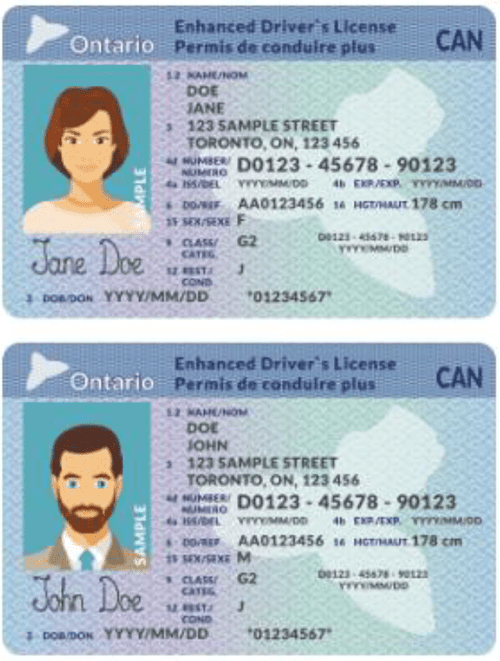- Need Any Help: +1 647-760-5505 or
- info@trubicars.ca

In Canada, throughout each province, license regulations and requirements vary. For those who are looking to get their license, it can be confusing to know which requirements you must meet. It’s important to know that there are 15 different types of licenses in Ontario, which certify you to drive a certain type of vehicle. To legally drive a car, van, or small truck in Ontario, you will need a G-class license. It is worth noting that before you can hold any other class license, a G-class license is required. Ontario’s G license is a graduated licensing system.
Trubicars has created this post to inform you how to go about getting your driver’s license in Ontario.

In order to hold a G class Ontario driver’s license you must:
When you are applying for an Ontario license, you must bring documents with you. These documents must show proof of your legal name, date of birth (day, month, and year), and signature. It’s important to note that these documents must be original and valid… meaning photocopies and expired documents are not accepted anywhere. Any of the following documents are acceptable to prove your identity:
If you are unsure whether or not your documentation is valid, check out the Ministry website: https://www.ontario.ca/document/official-mto-drivers-handbook/getting-your-drivers-licence

We know that no matter what kind of test it may be, taking a test can be stressful. It’s important to remember to remain calm and focused during any test you take.
Unlike most tests you may have taken in any sort of school setting, you won’t be solving math problems on your knowledge test. Instead, the knowledge test will test you on the rules of the road. However, just like any test you may have taken in school (or even outside of school) Road tests are just as critical and require studying. The Ministry of Transportation has a driver’s handbook that you can purchase to help you learn and study the rules of the road. The questions on the knowledge test will be based on rules of the road taken directly from the MTO Driver’s Handbook. If you’d like to preview the Online version of the Ontario Driver’s Handbook click here: https://www.ontario.ca/document/official-mto-drivers-handbook
Otherwise, it is highly recommended that you purchase your own copy or borrow a printed copy of the handbook in order to study for your knowledge test. All knowledge tests are created by the Ministry of Transportation and are available in 27 different languages to either write or complete on a computer. All knowledge tests are in multiple-choice format and not timed, meaning you can take as much time as you need to be successful. It’s important to note, however, that all tests are proctored to prevent cheating. This means you will be observed while you are taking your test to ensure everyone is taking it independently. On the day you complete your knowledge test you will also receive your results. So you don’t have to anxiously await a certain amount of business days! You will know instantly whether you have been successful or passed. You must score at least 80%, however, as stated above, if you are unsuccessful on your first attempt you can pay an extra fee for extra attempts.
Some of the topics that you might be tested about on your knowledge test include (but are not limited to):
For your knowledge test, Consider these tips from Trubicars:
At Trubicars our goal is to share our knowledge and driving experience with you. If you are looking to complete some practice knowledge tests, check out the following
https://www.drivingtest.ca/ontario-g1-rules3/
https://www.ontario.ca/document/official-mto-drivers-handbook/test-yourself-sample-knowledge-test-questions
https://tests.ca/ontario/g1-test-road-rules/
If you are looking for more information on Ontario Road tests, check out the Trubicars website!

 January 10, 2025 by
January 10, 2025 by Trubicars
Trubicars
 January 10, 2025 by
January 10, 2025 by Trubicars
Trubicars
 January 3, 2025 by
January 3, 2025 by Trubicars
Trubicars
Once you acquire the knowledge provided in
those tests, you are ready to pass the test,
for the first time.
